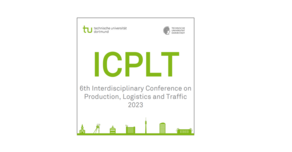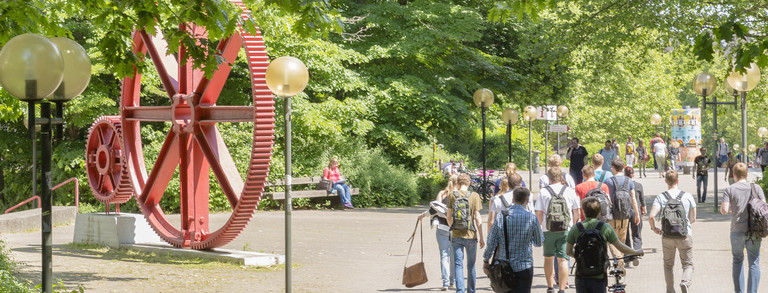Graduate School of Logistics - Simulation-based Planning and Control of Logistics Processes in the Production of Specialty Chemicals
- Current Projects
- Simulation and Logistics Engineering
Background
Dynamic market behavior and increasing customer requirements are phenomena of global competition and put the European players in the chemical-pharmaceutical industry under considerable cost pressure. This particularly affects the production of specialty chemicals, which have a short product life cycle compared to mass products and are only produced in small, demand-driven quantities. The combination of changing demand and the need for short-term adjustments requires flexible production planning. So far, the production planning is focusing only on the chemical and plant-specific aspects and, therefore, must be expanded in the future to include the associated logistics processes.
In this context, the aim of the project is to develop a simulation-based tool that can be used to analyze the product- and location-dependent logistical processes and to identify potential bottlenecks.
Procedure
The research project takes place within the framework of the Graduate School of Logistics (GSofLog) of the TU Dortmund University in cooperation with Merck KGaA and is designed for three years. To achieve this goal, the first step is to define a technical requirements catalog in cooperation with project partners. This includes the definition of the required data basis as well as the description of all planning steps. For a consistent data basis, the tool will access the existing data landscape and possibilities will be worked out to provide the tool with real-time data from the processes. This will be followed by the definition of key performance indicators which will be the main output variable of the simulation model. Based on this collected data, the development of the simulation model can be started. In this phase of the project, the main task is to design and implement the simulation environment in order to represent the logistic processes sufficiently accurately. In the final phase, the developed tool is to be tested and validated with regard to its applicability. For this purpose, various simulation scenarios will be performed, which are verified by comparing the previously defined key performance indicators with real values as well as discussions with experts from the field.
Targeted results
In this context, a simulation-based tool will be developed for this project, which can be used to analyze the logistical processes depending on the product as well as the production location and possible bottlenecks that can be identified. By simulating scenarios in terms of layout, processes and product portfolio, measures will be developed to resolve bottlenecks. In this model, it will be possible to make short- and medium-term predictions about logistics processes as well as to support product allocation in case of portfolio adjustments.
Contact: Prof. Dr.-Ing. Uwe Clausen
Funding and partners






